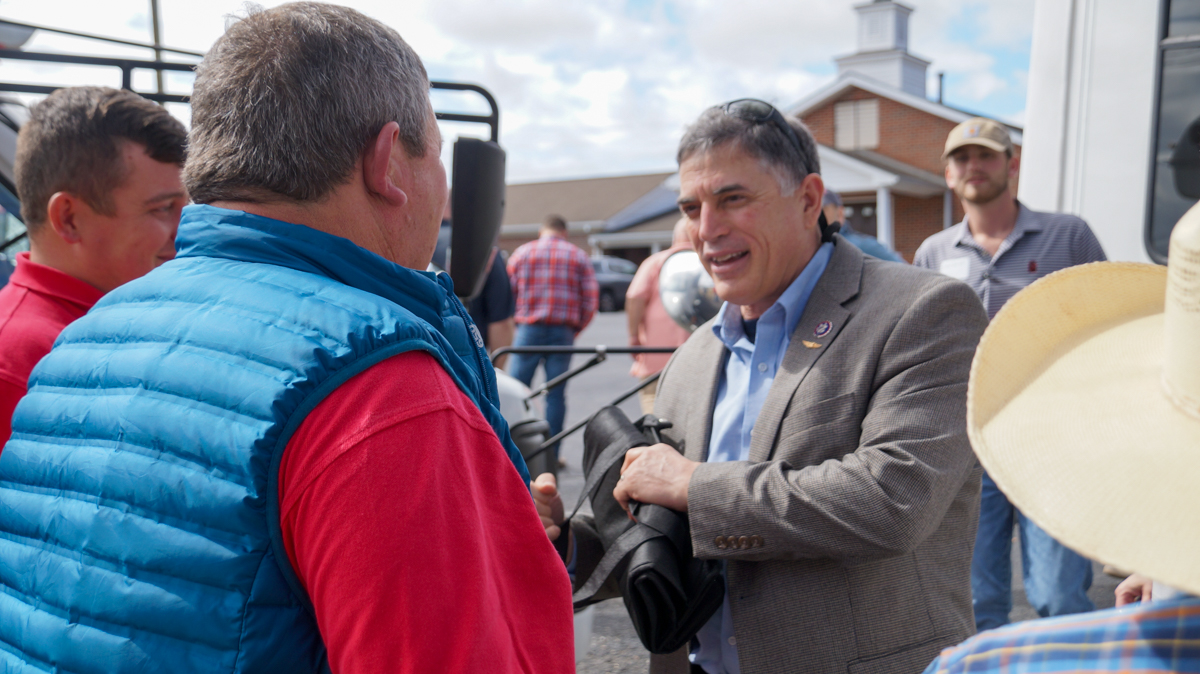
Habersham County’s chapter of the Georgia Farm Bureau (GFB) held a farm tour Friday, taking politicians who represent northeast Georgia around the region to show the area’s “next generation of agriculture.”
Habersham County Commissioners Bruce Palmer and Ty Akins were in attendance, as well as representatives from the farm bureau and US Representative Andrew Clyde. The event was organized by the Farm Bureau’s Young Farmers program to call attention to the people under 35 who are contributing to the region’s agricultural industry.
The tour covered a total of five family-owned farms from across Habersham County and into White County, including McClain Farm, Providence Farm, Barrett Farm, Shore Farm and London Farm.
The Young Farmers program put a spotlight on those in the area taking their dreams of working in agriculture and making them a reality. The family farms they toured highlighted young farmers who are taking up their family businesses and their dedication to family tradition in northeast Georgia.
A family business
Of the many regional family-owned farms, the family love and pride at London Farm shining through from past generations into the next sets it apart.
Sitting just outside the Habersham County border on New Bridge Road, London Farm in Cleveland has been a family endeavor since the early 1900s. Today, it’s a successful dairy cattle farm of over 800 acres, passed down from generation to generation.
The late Verner London changed the farm’s course to the dairy cattle farm it is today in the ’70s, where he worked hard alongside his son, Stanley, to bring it to its point of success. Stanley is now working alongside his son, Matthew, and became emotional as he recalled his father’s dedication to building London Farm.
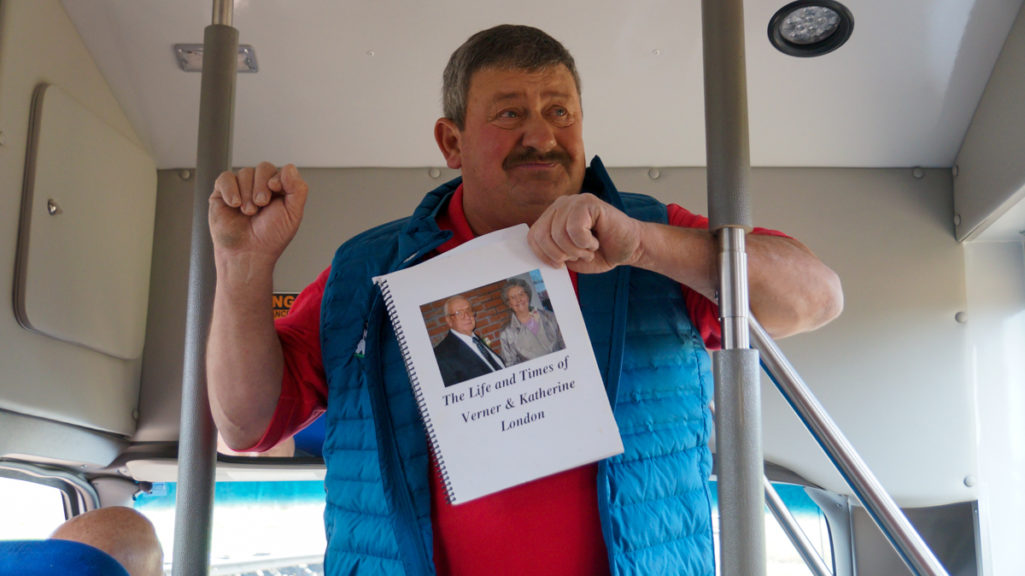
Stanley says that his father’s love for his family, his cattle and God reflected on his impact on the farm and on the community. He says that having the feeling of his family surrounding him and the farm in everything they do is indescribable.
“There’s nothing to describe having your family working with you,” Stanley said. “It’s a sense of pride, it’s a sense of joy … at least five to six generations of my family have been in agriculture, and to see the next generation, which my son, and hopefully the generation behind him, be involved, there’s a sense of pride.”
The next generation he’s talking about are his son’s five young daughters, who he hopes will take to the family business like those that came before them.
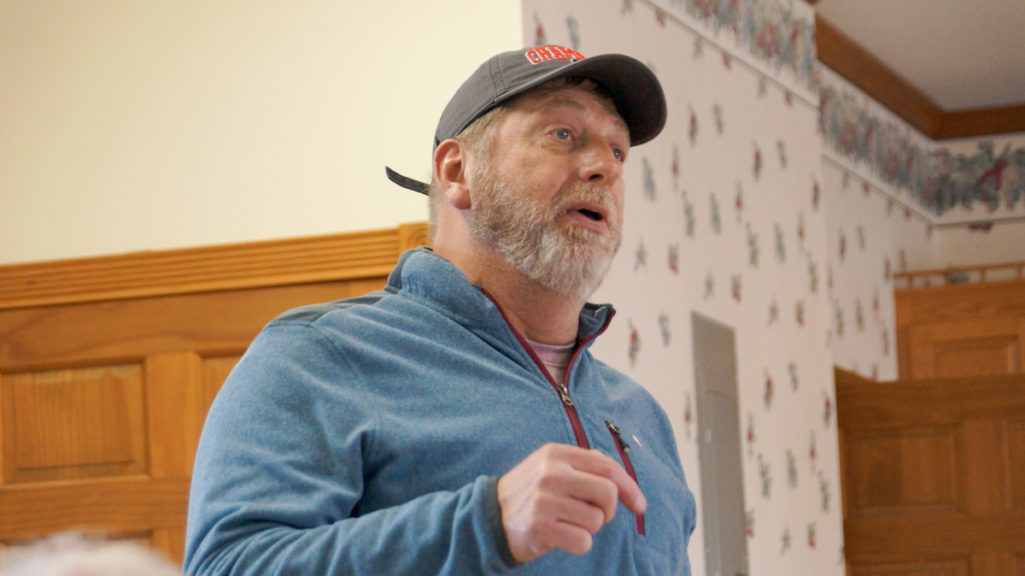
GFB Board of Directors member Gilbert Barrett says that while he doesn’t know what the future holds for the next generation of farmers with massive population growth projected in the future, he says he’s confident that new farmers will step up to the plate to face the challenges of the future.
“I feel very good because I see what’s happening with the next generation,” Barrett said. “[At] every farm we have been on today, we got to see the next generation stepping up to the plate and stepping into those roles in agriculture and farming operations. And I feel very good about that.”
Matthew London says that it’s important for young people to step up and into the farming industry, especially with an uncertain future in terms of food demand.
“From a macro scale, big scale, the security of having our food grown here locally and not having to rely on other countries is important,” he says.
But while members of the GFB say that they have confidence in new and future agriculture professionals, the future of farming could be rocky.
Protecting local farms
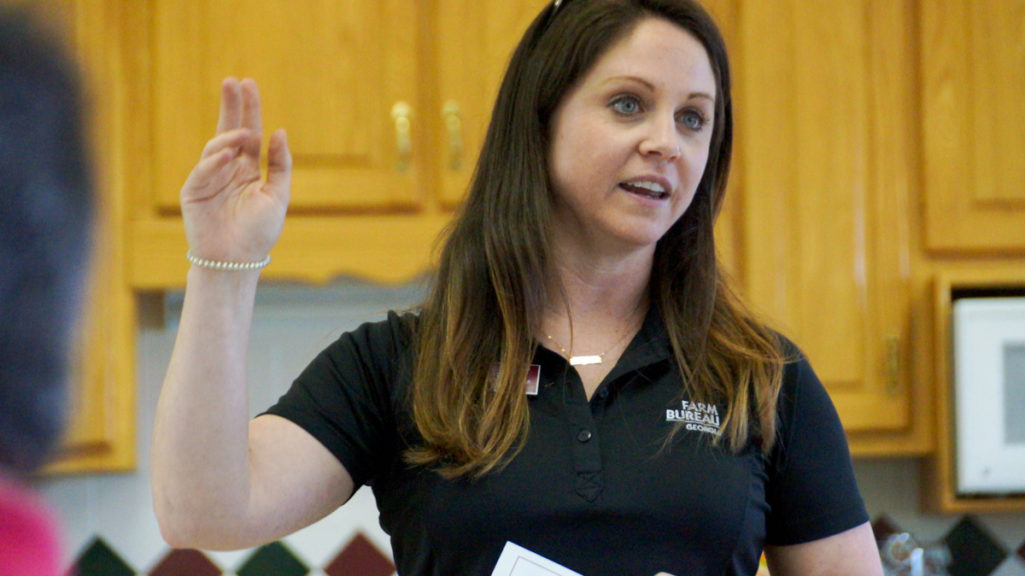
Farm Bureau Policy Advocate Katie Murray says that with urban expansion crawling into farming counties as the population grows, to continue to make farming as accessible as possible, government officials and farmers need to work together to keep farms in families.
She says the GFB’s biggest issue right now is pushing the Freedom to Farm Act, which is aimed at protecting farmers from nuisance lawsuits.
“This allows … these families who are farming and trying to pass it along to the next generation to continue to produce agricultural goods here in northeast Georgia without the nuisance of lawyers coming in forbidding them to continue what they’re doing,” she says. “That’s our priority issue right now.”
At the national level, there are issues local farmers hope to resolve with the United States Department of Agriculture that they shared with US Representative Andrew Clyde, who represents Georgia’s ninth district in Washington.
“Agribusiness is the backbone of the ninth district,” Clyde said. “Farmers … are the people who made America what America really is. They were the first ones to populate our country and, you know, what would we be without farming?”
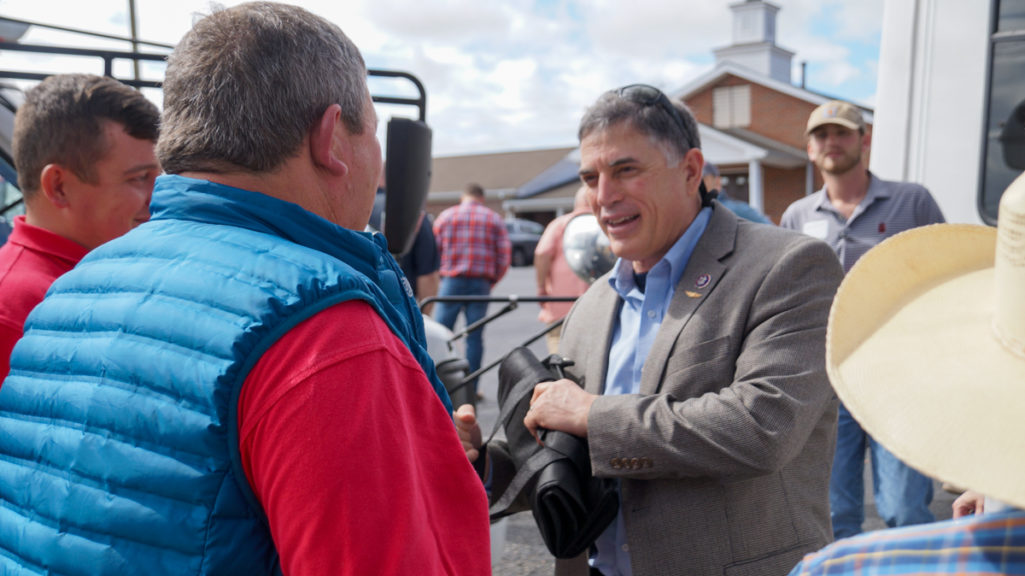
Clyde referred to farmers as “the backbone” of the country, and in his work in Washington, he says he takes policy for farmers seriously. He said that the tour showed him not only an up-close look at many of the region’s farms and workers but a better understanding of what struggles they’re facing.
“I need to understand from them what their issues are, because I’m the representative for the federal government,” Clyde tells Now Habersham. “When the federal government ends up being difficult to work with, or when it has regulations that make it difficult on farmers, then I need to know that so I can help the farmers navigate that because government is supposed to be there for the people not to get in the way of the people.”






